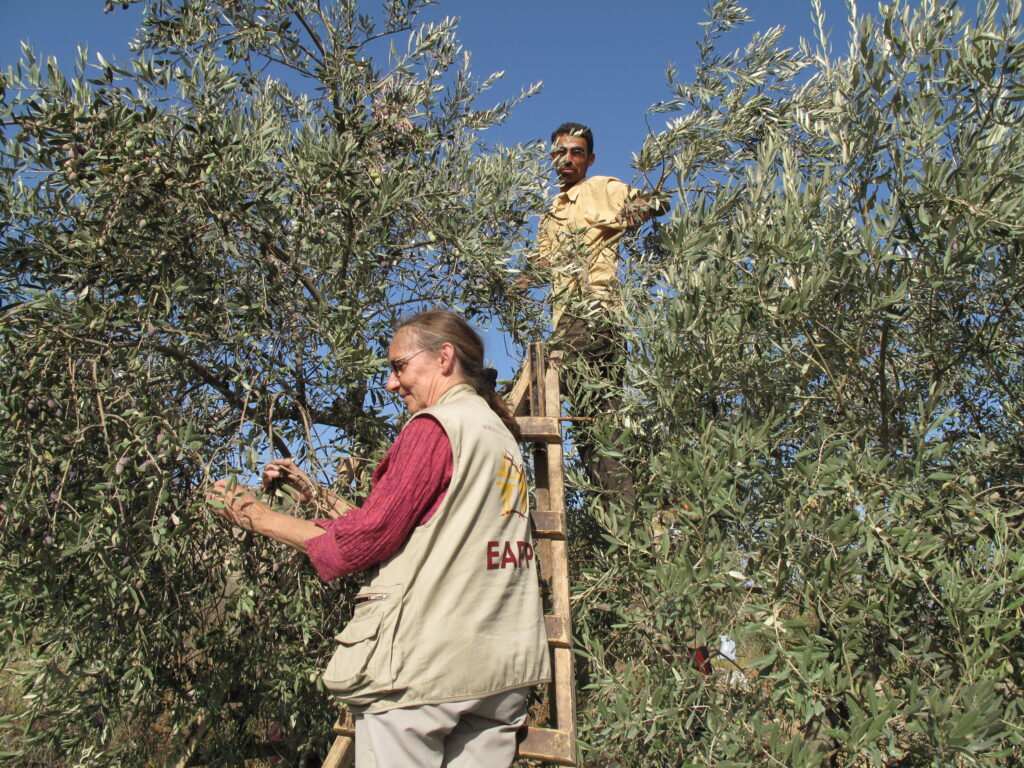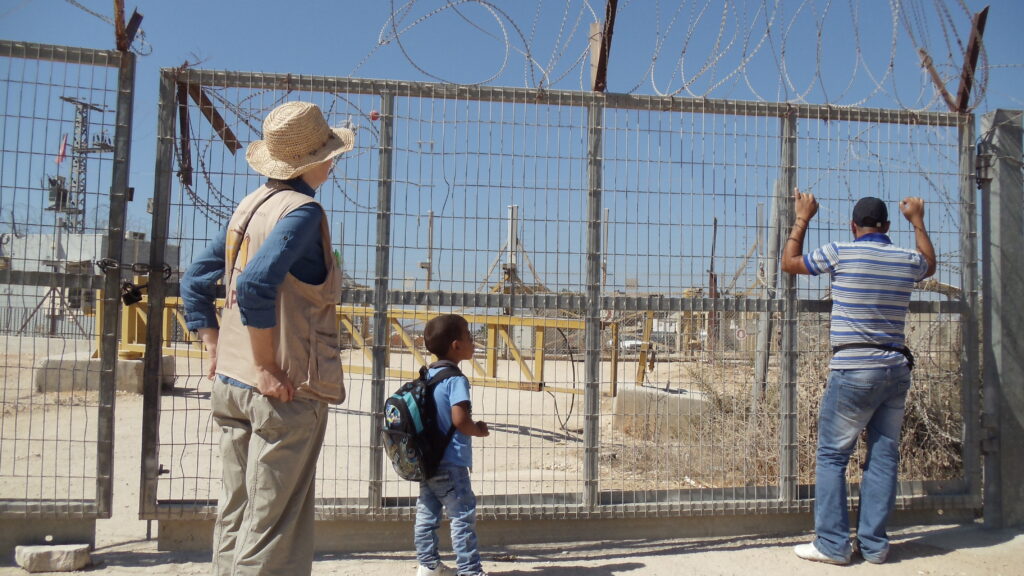
Photo: Sara avMaat, 2010, EAPPI https://www.flickr.com/photos/unitedchurchcda/12839921063/ CC BY-NC-ND 2.0 Deed
This article follows on from an earlier entry ‘Observation as a tool for peace in Palestine and Israel‘, which contains a longer background on what the World Council of Churches’ (WCC) Ecumenical Accompaniment Programme in Palestine and Israel (EAPPI) is and what it does. EAPPI is a faith-based organisation that arranges for around 25 Ecumenical Accompaniers (EAs) to live in Palestine and Israel for three months at a time to monitor human rights violations. EAs provide a permanent presence according to the model of accompaniment. As opposed to neutrality, EAPPI instead follows a model of ‘principled impartiality’ in their accompaniment.

EAPPI defines their principled impartiality in the following terms:
‘We are not pro-Israeli or pro-Palestinian and we do not take sides in the conflict. We are pro-human rights and international humanitarian law. We do not discriminate against anyone and stand faithfully with the poor, the oppressed, and the marginalized.’
EAPPI: Our Model
They do not identify as neutral, which for them implies non-action, but as non-partisan. EAs should not want one side to dominate, nor be corporately uninterested due to another priority (like maintaining access to administer humanitarian aid, which is a position more in line with the Red Cross and Red Crescent’s approach). They should actively work for a just – win-win – and lasting peace. This approach differs from neutrality enough to allow for their public engagement and activism. The stress on principled impartiality aims to offer freedom to discuss, praise, and condemn policies, without jeopardising their mission.
This is a far more active attitude than the Red Cross, who believe the appearance of neutrality is mission-critical for their work. Part of the reason why EAPPI rejects neutrality is its lack of independence; any resolutions, minutes or speeches made by the World Council of Churches reflect on them, so any attempt at neutrality would be pointless. For instance, the WCC has repeatedly affirmed Israel’s right to exist, while also campaigning for an end to the 1967 military occupation; both positions are very disagreeable – and non-neutral – to different political factions. Some organisations, like the Red Cross, manage to avoid this dependence-based reputational linking, though this comes at a non-trivial cost (for example, chartering different flights to remote areas to avoid sharing resources with other aid organisations that are seen as non-neutral).
EAPPI’s reputation for advocacy has led to accusations of bias against the state of Israel and Israelis. The programme is alleged to lack balance, usually for not taking seriously Israeli demands for security; some say that EAs do not spend enough time with Israelis or learning about victims of Hamas’ violence. In response, EAPPI has ensured EAs have an extended tour of the Holocaust Museum, share Shabat dinner in Jerusalem, and visit Sderot, to talk to Israelis affected by Hamas attacks.
‘Principled impartiality asks a lot: active listening, critical thinking, empathy, ethical reasoning, understanding of history, religion, geography, knowledge of human rights, and deep curiosity about a context people devote lifetimes to studying.’
Ellis Brooks, October 2023
For it to be effective, principled impartiality must take account of structural imbalances: as Emma Walker argues, ‘impartiality taken to the extreme is a political vacuum’. Useful impartiality requires equal listening, rather than equal hearing; accompaniers must actively listen to all who face injustice, rather than picking who to listen to based on prejudices or who is talking the loudest. The programme operates under the assumption that both Palestinians and Israelis are harmed by the occupation; they have only been invited to operate in Palestine, but include Israel in their name for this reason. For EAPPI, neither Israel nor Palestine can survive without a just and lasting peace.
When organisations with reputations for each are present in a conflict zone, principled impartiality and neutrality complement one another. Principled impartiality allows EAPPI to give uncensored eyewitness accounts of the conflict, thereby mounting pressure on the authorities to prevent human rights violations; total neutrality allows the ICRC to have unfettered access to detainees and facilitate hostage releases. Both of these contributions are distinct but crucial elements of peace-making and peace-keeping.
What do you think?
- Is neutrality or principled impartiality a better approach in the Palestine-Israel conflict? What about in general? Does it depend on the type of conflict? What are their separate contributions to peace-keeping and peace-making?
- How can you balance maintaining your principles while being willing to listen to all sides?
- Is it possible to be ‘pro-human rights and international humanitarian law’ without taking sides when you perceive human rights abuses or breaches of international humanitarian law?
- Would such an approach work on a smaller scale, for example in divorce courts?
If you enjoyed this item in our museum…
You might also enjoy Observation as a Tool for Peace in Palestine and Israel, The Place of Neutrality in Peace Work, and this podcast on EAPPI’s work: Principled Impartiality and Accompaniment in Peacebuilding. Also relevant are entries in this series on Quaker Faith & Practice: The Origins of Quaker Peace Testimony, Quakers and Conscientious Objection, Relief from Suffering, Peace and Faith in Practice, and Mediation and Disarmament
Robert Rayner, November 2023.